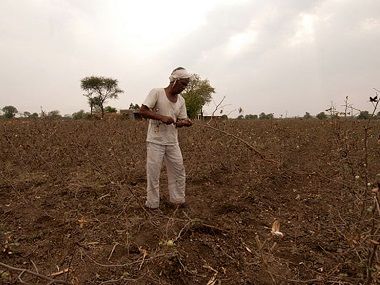https://www.moneycontrol.com/news/business/economy/budget-2020-solar-pump-scheme-may-be-good-for-farmers-but-is-susceptible-to-misuse-4892321.html
Budget2020
Solar pumps is a terribly bad idea
RN Bhaskar — 1 Feb 2020
“I propose to expand the scheme to provide 20 lakh farmers for setting up stand‐alone solar pumps; further we shall also help another 15 lakh farmers solarise their grid‐connected pump sets. In addition, a scheme to enable farmers to set up solar power generation capacity on their fallow/barren lands and to sell it to the grid would be operationalized.
Our government shall encourage balanced use of all kinds of fertilizers including the traditional organic and other innovative fertilizers. This is a necessary step to change the prevailing incentive regime, which encourages excessive use of chemical fertilisers.”
The above proposal was made by the Finance Minister, Nirmala Sitharaman as part of her Budget speech this morning.
The proposal sounds good. Even sensible. But it could turn out to be a nasy proposal. For two reasons.
First, when a farmer uses conventional electricity, he pays a subsidised tariff (of around Re 1 per kWh or thereabout). That makes him careful about not wasting electricity and thus pushing up his bills. He thus uses less ground water. When he has a solar pump, there is no billing. So he will tend to leave his pump on, draining more of precious ground water. This is disastrous, especially for a country that is already witnessing declining water tables.
The other alternative is to persuade him to sell surplus solar power back to the grid and thus earn some money. That will probably persuade him to switch off his pump and send the solar power to the grid, and earn a feed in tariff from the state electricity board.
And this is where the catch lies. Subsidised power for the farmer is sold to him at around Re.1 per unit. The feed in tariff for solar power is around Rs.3. The government is thus tempting the farmer to steal from the grid at Re 1 and sell it back to the grid at Rs.3. The scale of corruption could be huge. And there is no way of preventing this at each and every village in India. This was tried out by NDDB in a controlled pilot programme (https://www.moneycontrol.com/news/business/economy/how-two-villages-harnessed-solar-pumps-to-create-incomes-for-farmers-conserve-groundwater-4381161.html). But everyone knows that a nationwide scale-up of this experiment would be disastrous.
The only solution would lie in selling grid power to the farmer at Rs.3.5 or more per unit. Then this theft would not be possible, and depletion of water tables could also be minimised. But that will require tremendous political will.
The government hasn’t even thought of these consequences.







































COMMENTS